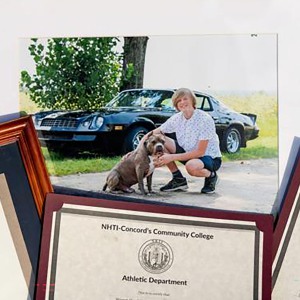New Hampshire House passes cannabis legalization, but enthusiasm lags
| Published: 02-26-2025 9:10 AM |
The New Hampshire House once again passed a bill Thursday that would legalize cannabis in the state. But with Gov. Kelly Ayotte staunchly opposed to the idea, even supporters are expressing doubts over its viability.
“We’ve tried 50 different bills over the last few years,” said Rep. Terry Roy, a Deerfield Republican and the chairman of the House Criminal Justice and Public Safety Committee, speaking to his colleagues Thursday. “Nothing seems to go through. And let me tell you, this one ain’t going to go through either.”
The bill in question, House Bill 75, does not attempt to create an elaborate structure of taxation, retail authorization, state-led product testing, or enforcement, unlike past efforts. Instead, the bill simply makes cannabis use and possession legal for all people in New Hampshire 21 and older, and removes any existing reference to cannabis from the state’s drug laws.
And while the bill passed the House — by voice vote — it did not appear to carry the overwhelming bipartisan support legalization bills have in the past. The House was more enthusiastic about passing a bill that would annul the criminal records of people convicted of cannabis possession, and one allowing therapeutic patients to grow their own cannabis plants under supervision.
The result comes in the wake of a number of setbacks for legalization, including the dramatic failure to pass a bill last year, and the entry of a new governor who is against the idea.
In 2023, then-Gov. Chris Sununu reversed years of personal opposition and said he might sign a cannabis legalization bill if it included tight state control over marketing and sales. In 2024, Senate lawmakers cobbled together a bill to meet those requirements, only for the usually pro-cannabis House to reject the bill, arguing it included too much government involvement.
Meanwhile, Ayotte ran a campaign focused in part on increased drug enforcement, and stated clearly that she would not support cannabis if elected. She has continued that position in office.
While polling in New Hampshire continues to show high support for legalization, enthusiasm among advocates appears to have dampened. During the House hearing for HB 75, the sponsor, Rep. Kevin Verville, a Deerfield Republican, did not show up. Rep. Jennifer Rhodes, a Winchester Republican, said that helped influence her decision to recommend the bill be killed.
Article continues after...
Yesterday's Most Read Articles
 ‘A bit Kafkaesque’: Federal judge spars with government lawyer over status of Dartmouth international student
‘A bit Kafkaesque’: Federal judge spars with government lawyer over status of Dartmouth international student
 NH 21-year-old dies amid the worst flu season since 2009
NH 21-year-old dies amid the worst flu season since 2009
 Hundreds of alumni sign letter urging Beilock, Dartmouth to make a stand for academic freedom
Hundreds of alumni sign letter urging Beilock, Dartmouth to make a stand for academic freedom
 After more than 45 years, Upper Valley guitar shop closes
After more than 45 years, Upper Valley guitar shop closes
 On the trail: Gov. Ayotte says she delivered on her promises in her 100 days in office. Not everyone agrees
On the trail: Gov. Ayotte says she delivered on her promises in her 100 days in office. Not everyone agrees
 Claremont City Council votes unanimously to fire city manager
Claremont City Council votes unanimously to fire city manager
“Because the Governor has publicly stated she had no intentions of making cannabis legal in the State of NH and we were not able to hear the bill’s merits the majority decided to recommend this bill as inexpedient to legislate,” Rhodes wrote in a report to the Legislature ahead of the vote.
To Roy, the likely opposition in the Senate and governor’s office means the House should not pass a simple legalization bill like HB 75, but should move forward with something more thoughtful.
“Let’s do it smart and do something that takes care of children, has guardrails and protections,” he said. “Not just throw it out there. If we’re going to do it, do it right.”
But others, like Rep. Jodi Newell, a Keene Democrat, said House lawmakers should continue to strive to pass the policy. “We trust our citizens over the age of 21 to consume alcohol responsibly, and rightly so, but somehow we still maintain that our citizens cannot be trusted to consume cannabis responsibly, even as we know that it is virtually impossible to consume a lethal amount,” she said.






 Proposed cuts to Medicaid worry Upper Valley health care providers, advocates
Proposed cuts to Medicaid worry Upper Valley health care providers, advocates Vermont regulators approve Woodstock water system purchase
Vermont regulators approve Woodstock water system purchase With its funding in peril, NH's child advocate faces pressure to stay quiet on LGBTQ issues
With its funding in peril, NH's child advocate faces pressure to stay quiet on LGBTQ issues NH Supreme Court declines to consider resentencing in murders of Dartmouth professors, sends case back to lower court
NH Supreme Court declines to consider resentencing in murders of Dartmouth professors, sends case back to lower court
